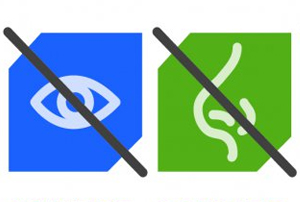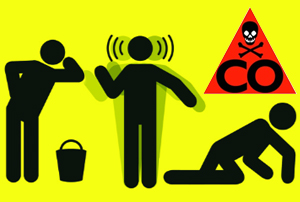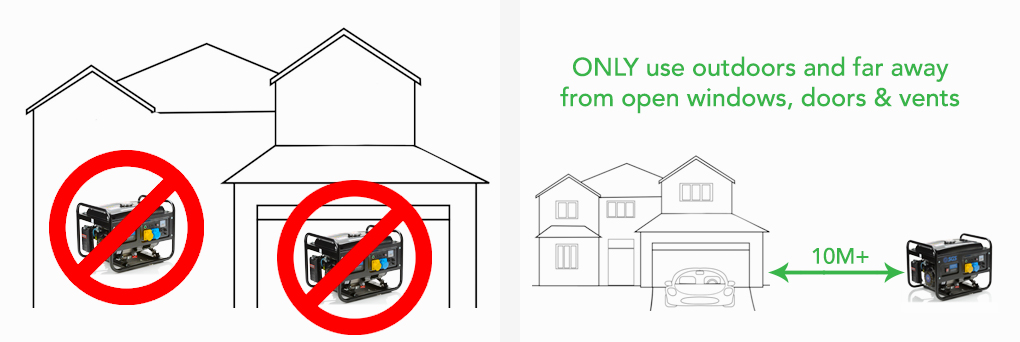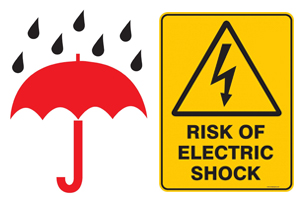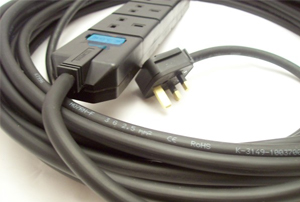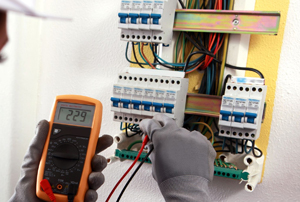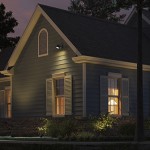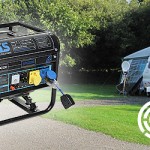A portable generator can be an incredibly useful tool whether you’re using it at home, professionally in a commercial setting or on a camp site for leisure activities. It’s worth keeping in mind that with every engine driven machine, there are dangers involved in the operation. This safety guide is designed to give you a quick overview of the main safety concerns when using a portable generator, and minimise the risks involved in using one. We've collected everything you need to know about generator safety, and put it into one convenient guide.
There’s three main safety concerns when dealing with a generator;
- Carbon Monoxide (CO) emissions and the potential for CO poisoning
- Electrical hazards and the potential for electric shocks / electrocution
- Fire and explosion hazards
We’ll look at these three hazards in turn and provide the safety information you need to minimise these risks.
Carbon Monoxide Poisoning
By far, the most serious danger involved with using a generator is carbon monoxide poisoning (CO). Every year, people die because they incorrectly use a generator and get CO poisoning. NEVER use a generator in an enclosed, or a partially enclosed space.
You can’t see it, you can’t smell it
Generators, as with many engine run machines, produce a lot of carbon monoxide very quickly. It’s completely odourless and you can’t see the gas. Even if you can’t smell the exhaust fumes, it doesn't mean you’re not exposed.
Sick, dizzy, or weak
If you start to feel unwell while using a generator, get out into the fresh air right away. Symptoms of CO poisoning include feeling dizzy, sick or weak, however this can quickly turn to incapacitation, then death.
Never Use a Generator Indoors
The only way to protect you and others around you from carbon monoxide poisoning is to never use a generator indoors. Never run a generator in your home, garage, cellar, shed, cabin, tent or any other enclosed area. Even partially-open areas with ventilation will build up CO - opening doors and windows or using a fan won’t negate the risks.
- Follow the instructions that come with your generator
- Locate the unit outdoors, well away from any doors, windows and vents
- Get yourself a CO alarm with battery backup for your home or workplace
- Test your CO alarm frequently and change the batteries as required
Remember: Every year people die of carbon monoxide poisoning. Never run your generator is an enclosed space. CO poisoning can kill you in minutes.
Electrical Hazards and Electrocution
Generators are designed for outputting a large amount of power in times of need, but if your generator has been damaged or you use it incorrectly, that electrical output might end up somewhere it shouldn't - potentially hurting you or those around you. Here’s some quick tips you need to follow in order protect again the risk of electrocution.
Keep the generator dry and out of the rain
Avoid moisture and operate your generator on a dry surface. Use a protective canopy if you can. Dry you hands properly before you operate a generator.
Use properly rated cables and extensions
If you can’t plug an appliance directly into the generator, use a heavy duty, outdoor rated, extension cord. Make sure your cord is rated in amps or watts, to more than the total connected appliances' load (including any start-up requirements). Visually inspect that the cord is free from tears, or cuts. Make sure that all three pins in the plug (especially the earth), are undamaged.
Never try and back-feed your generator
Plugging your generator into your homes electric outlet is known as back-feeding, and is incredibly dangerous. Not only could you end up hurting yourself, you put everyone else served by the same utility transformer at risk. Not only could it make every one of yours (and potentially your neighbours’) plug sockets live, it’ll bypass some of your homes built-in circuit and overload protection devices.
Use an electrician for wiring in a back-up generator
If you plan to connect your generator to your homes wiring, you must have a qualified and competent electrician to do the installation. You will require a proper transfer switch that satisfies all the requirements of local electrical codes. This is not a DIY job!
Although unlikely, a generator is essentially a liquid-fuel powered engine with a fuel tank on top - if your generator is damaged or you use it incorrectly, there's a risk of the fuel igniting.
Fire and Explosion Hazards
Clear up any spilled fuel immediately
Fuel in the open air is much more likely to catch fire than fuel correctly stored. Even a small spillage can lead to a much bigger problem in the wrong circumstances. Clear up any fuel as soon as an spillage occurs.
Never refuel a warm generator
Before you refuel a depleted generators fuel tank, make sure the whole generator has had a chance to cool down. Switch it off and leave is for at least an hour. Spilled fuel on a hot engine can ignite.
Store your fuel safely
Whether your generator runs off petrol, diesel or LPG, you should never store it in your home. Keep flammable fuels outside of a living space and have it properly labelled in appropriate safety containers. Don’t leave your fuel near a fuel-burning appliance, such as a heater in a garage. If your fuel is not properly sealed, vapours will slowly escape and accumulate. This vapour can be ignited by a pilot light or even arcs from electrical switches in appliances.
Avoid using a generator on a boat
We don’t recommend using a petrol generator on a boat. Petrol spillage or a leak will potentially result in vapours building up in the hull of a boat. Even the slightest spark (like the flick of a light switch) can ignite petrol vapours and cause an explosion.
Only allow a qualified electrician to install a generator via a transfer switch into your mains power supply. This is a simple job for a quailed electrician, but extremely dangerous for you to attempt yourself.
Advice for Connecting Your Generator to Your Home or Work
- A generator should be completely isolated from a mains power supply - without the correct isolation, a utility worked could be seriously injured while working on the mains supply.
- Use a double-pole, break-before-make, changeover switch (HD manual changeover switch).
- Only use a generator with an output of 5kW or larger as backup power for your home.
- The lead between the generator and the transfer switch is not protected by the RCD built into your home. We recommended using a steel armoured cable for this connection.
- A low impedance earth spike needs to be installed when using a generator for premises back-up power.
As with any powered machinery, if in doubt, stop and ask a professional. Do not take any risks with your generator. Keep it regularly serviced and visually inspect for damage before every use.
Still Need Help?
Our in house experts are always on hand for buying advice and to provide bespoke care, regardless of the application.
Call SGS on 01332 576 850 or fill out our contact form today.

